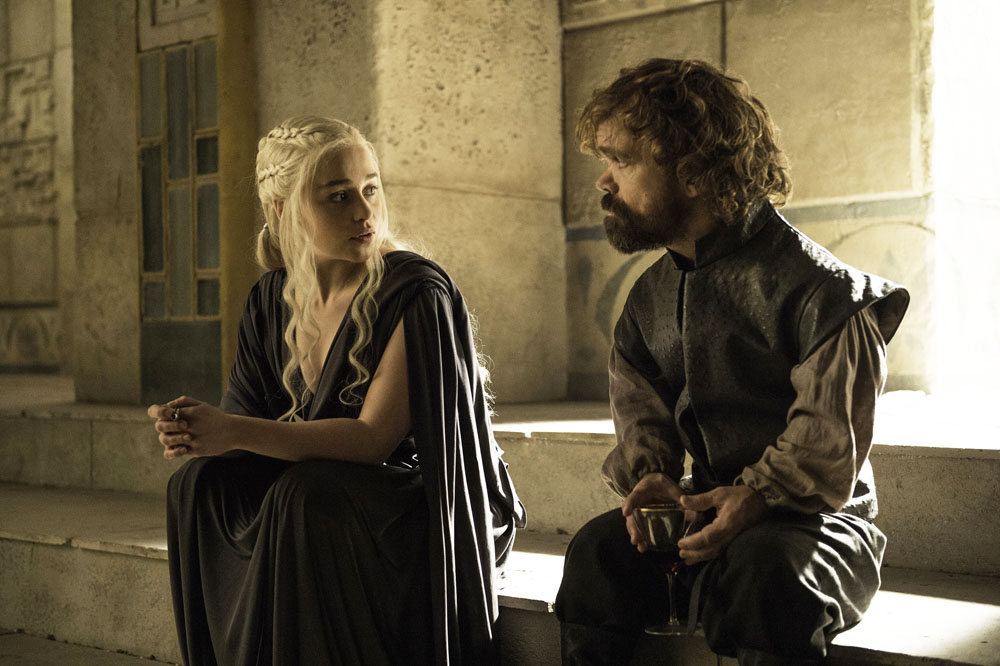In looking through the blog logs yesterday, I noticed that someone searched for “Game of Thrones.” It seems odd in retrospect that I haven’t really blogged about the greatest achievement in fantasy since Tolkien, both in literature and in television. (I’m open to the argument that George R.R. Martin’s achievement has surpassed Tolkien’s.)
The reason, really, is that I’m so into Game of Thrones that, if I started writing here about Game of Thrones, there’d be no end to it. I would become a Game of Thrones boor. Besides, everyone writes about Game of Thrones. Each Monday morning after a new episode, the media cover last night’s happenings in Game of Thrones just like a news event. On a slow news day, Game of Thrones is a big story. The real world blurs into the Game of Thrones world. That in itself is tremendously exciting and serves as a reminder of the power of stories and the power of fantasy — not to mention our need for escape and distraction (especially on Sunday nights when so many hardworking people are dreading the reality of Monday morning).
Since the very beginning, with Season 1 in 2011, Ken and I have spent untold hours discussing each episode and developing what I would call Acorn Abbey’s theory of story analysis (which is pretty well developed and taken very seriously). If Ken is here, the discussion happens at the table, at breakfast and dinner. If Ken is away, the discussion happens in emails. Game of Thrones matters. If you’re a writer, you want to understand how Martin does what he does. You also become very attached to these characters. You have to know what happens to them.
Ken has pointed out how, in many ways, the genre of the two-hour movie is increasingly passé. Even when there are sequels, two-hour movies can’t accomplish what a series can accomplish — world building, character development, complex intertangled plots, a deep exploration of time, place, people and ideas. No doubt it was literature that led the way. Isaac Asimov started his Foundation series in 1951, and the Robot series in 1954. Though I think that Tolkien did not really think of The Lord of the Rings as a series when he wrote it, it was broken into volumes for publishing (starting in 1954). Now everyone writes series. Yes, most of them are bad. You’ve all heard Sturgeon’s law: “Sure, 90 percent of science fiction is crap. That’s because 90 percent of everything is crap.” Theodore Sturgeon was, of course, a science fiction writer.
If you’re a Game of Thrones fan, none of this needs saying. If you’re not, then it’s not too late. The books are as close as Amazon. Everything is available on DVD and Blu-ray. The two HBO apps, HBO Now and HBO Go, keep all seasons available for streaming.
And tonight at 9: Season 7, episode 5.


I’ll have to watch it. I’ve just finished watching The Last Kingdom so I’m going to need a replacement:)